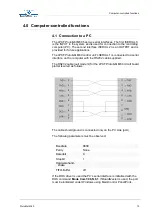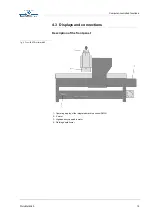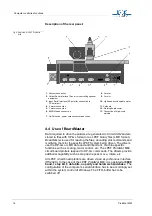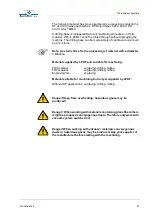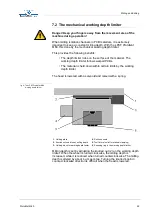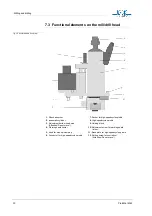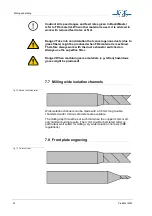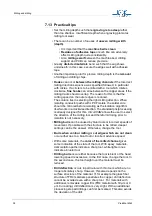
Tools and accessories
26
ProtoMat M60
6.2 Materials used for machining
In general all base materials supplied by LPKF can be used for
machining. You are free to machine all other materials at your own risk.
Take into consideration the notes of the manufacturers.
However, the most basic phenol resin qualities (FR 2) can adversely
affect milling quality.
Glass fiber reinforced epoxy material (FR 4 or G 10) can be a health
hazard due to the milling dust produced (allergies, risk of cancer). Tool
service life is also substantially reduced.
Danger! Never work without extractor!
We recommend epoxy material without glass fiber (FR 3). With top
milling quality and a high tool service life, no disadvantages with regard
to FR 4 are known other than a slightly reduced mechanical strength
bearing capacity (breakage). This drawback should not be of any
significant importance for prototype boards plates unless particularly
heavy components are to be mounted. The adhesive quality of the
copper on the base material is mostly slightly reduced which might lead
to the removal of smaller pads.
Normally, a total thickness of 1.5 mm and a Cu thickness of 35 µm are
used. With 17 µm material even fine milling channels can be engraved at
a higher packing density. For galvanically through-hole-plated, double-
sided PCBs, 5 - 17 µm Cu thickness is used to prevent an excessively
thick copper layer after galvanic copper application.
With 70 µm material, compromises must be made when setting milling
depth. I.e. a deeper milling depth results in wider milling channels of 0.5
to 0.7 mm.
Special base materials with a thicker copper layer of up to 300 µm can
no longer be machined with the LPKF universal milling cutter. Contour
milling cutters or special tools are needed for this. In these cases, we
would ask that you consult us and send sample material so that tests
can be carried out if appropriate.
Teflon materials can be machined, but the following points must be
borne in mind:
• As the material is very soft and therefore often extremely uneven,
a constant milling width often cannot be maintained unless, so
the material is should be smoothed first.
• Because the material is so soft, it is not possible to mill such as
fine isolation tracks as in epoxy material.
Danger! Machining Teflon might produce hazardous gases! Protect
Teflon from overheating!


